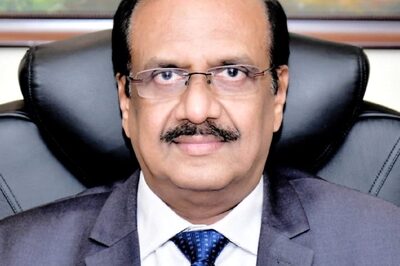
views
New Delhi: In September, 1997, Mayawati kept her side of the bargain and handed over the reins of the coalition government in Uttar Pradesh to Kalyan Singh. This was part of the 'rotational Chief Minister' deal between BJP and BSP which gave both parties a chance to lead the government for six months each, with Mayawati getting first shot at the helm.
A few weeks later, the BSP leader withdrew support from Kalyan Singh's government. Governor asked the BJP to prove majority on the floor of the house. Eleven BSP MLAs defected to vote with the treasury benches. But this number was 12 short of the total legislatures required under the then existing Representation of People’s Act and Anti Defection Law for the defection to be formally recognised as a ‘split’ in the BSP legislature party.
The BSP petitioned the presiding office of the house, Kesari Nath Tripathi. Speaker's order not only saved the day for the defecting MLAs but also the Kalyan Singh government helping BJP to remain in power for the next four years or the entire duration of the assembly.
On many occasions in the last two decades, loopholes in the anti-defection law have been used by political parties - on either side of the political spectrum - to drum up support whenever in trouble. The law was enacted in 80’s to put a lid on ‘Aya Ram-Gaya Ram’ politics- the name derived from a Haryana legislature Gaya Lal who switched sides, not once, twice, but thrice in a span of 9 hours.
The anti defection law in its original form had provisions to debar MLAs from the membership of the house if the renegade group did not comprise of at least one third members of the legislature or parliamentary party. The law was later amended to increase the threshold to two-third of the strength of the MLAs or MPs in the house.
But the law also makes the speaker of the house the sole and final arbiter for adjudicating all disqualification petitions. And there is no time limit prescribed for passing an order on such petitions.
It is precisely for this reason that the Supreme Court on Tuesday asked Parliament to "rethink" the Speaker's exclusive powers to decide on disqualification of lawmakers and held that an independent and permanent tribunal should take on the role.
Highlighting that the Speaker is still a member of a political party and an insider in the House, a three-judge bench, headed by Justice Rohinton F Nariman, questioned if he/she should alone be entrusted with the decision on disqualification of a political defector.
"It is time the Parliament had a rethink on whether disqualification petitions ought to be entrusted to a Speaker as a quasi-judicial authority when such Speaker continues to belong to a particular political party either de jure or de facto," the court said.
In its 31-page judgment, the apex court asked Parliament to amend the Constitution in order to substitute the Speaker of Lok Sabha and Legislative Assemblies as arbiter of disputes by an "outside" authority.
The apex court’s ruling came on a petition which challenged the Speaker's exclusive powers to decide on disqualification of lawmakers. The petition was filed by two Congress MLAs against BJP MLA and Manipur Forest Minister Thounaojam Shyamkumar for defection.
The bench has now asked the Speaker to decide disqualification petitions by the Congress MLA within 4 weeks, and added the MLAs could come back to the court if a decision isn't taken.
In its order on the defection of Karnataka MLAs last year, a three-judge Bench of the SC had urged Parliament to "reconsider strengthening certain aspects of the Tenth Schedule, so that such undemocratic practices are discouraged".
Another instance of inordinate delay in adjudicating disqualification petitions were reported in both Andhra Pradesh and Telangana between 2014 and 2019. In both cases, defections from opposition parties were piecemeal and not in one go. Despite disqualification petitions pending with the speaker, some of the rebel YSRCP Congress MLAs even became members in Chandra Babu Naidu government.
Precisely the reason why the Supreme Court has now batted for an independent mechanism, “to ensure that such disputes are decided both swiftly and impartially”, and within a stipulated time frame.



















Comments
0 comment